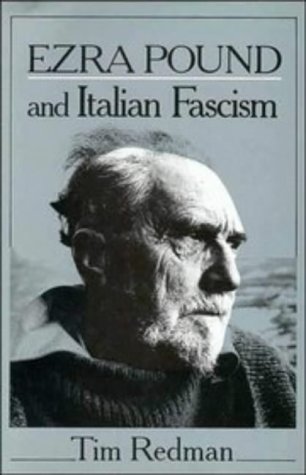For us to love our country, Burke somewhere wrote, our country must be beautiful. The sheer aesthetic ugliness of modern capitalistic civilization has been as much a reason for the revulsion against it on the part of poets, artists, and social critics as have its various injustices and inequities, real or alleged. We are inclined nowadays to see the history of social and artistic protest against modern commerce, industry, and urbanization as a left-wing phenomenon, leading to its gruesome apotheosis in Marxist communism, but this is an inadequate reading of two hundred years of literature, art, and criticism.
“Ill fares the land, to hast’ning ills a prey, / Where wealth accumulates and men decay,” wrote Oliver Goldsmith as capitalist industrialization and urbanization were moving into high gear in England in the late 18th century. He was followed by a line of English, American, and European writers who have been retrospectively co-opted by the left, even though their own sympathies and loyalties were either Christian or idealistic: Wordsworth, Blake, Carlyle, Dickens, Emerson, Thoreau, Arnold, and Ruskin, among others. In our century, often drawing on them, came important non-Marxist critics such as Hilaire Belloc, G. K. Chesterton, T. S. Eliot, and the American Southern Agrarians, whose 1930 volume of essays, I’ll Take My Stand, is one of the noblest documents in modern American literature and provides a link to more recent writers of similar views, such as Aldo Leopold, Russell Kirk, E. F. Schumacher, Wendell Berry, and Wes Jackson.
Among these Ezra Pound must be included, and it is a surprisingly complex Pound who emerges from Tim Redman’s dispassionate, detailed Ezra Pound and Italian Fascism. Redman is refreshingly free of the more egregious Marxisant biases that are still so characteristic of American academic writing. Rightly deploring Pound’s anti-Semitism and his willful blindness to the evils of Mussolini’s regime, Redman is nevertheless judicious in his discussion of the development and character of Pound’s thinking on culture, polities, society, and—especially—economics. (Redman emphasizes that Italian Fascism was historically distinct from the German National Socialism with which Mussolini disastrously allied his movement in its terminal phase.)
Like so many 20th-century intellectuals and artists, Pound did become a power-worshiper, and he failed to see how much of a “sawdust Caesar” Mussolini really was. Resident in Italy from 1925 until his surrender to his American compatriots in May 1945, and again at the end of his life, Pound started out by admiring both Lenin and Mussolini as powerful world-historical individuals who were actually doing something about the appalling conditions of the post-World War I world; for the same reason, he admired Nietzschean aesthetic adventurers such as the Futurist F. T. Marinetti and Gabriele D’Annunzio. He was to some degree seduced by melodramatic vitalist bombast and its cult of the will to power.
Yet as Redman’s study shows, the evolution of Pound’s thought was a complex and not altogether ignoble affair. Pound set himself to make economic as well as moral sense of his world—”to see life steadily and whole”—and to be a Confucian wise man and a sage, not just an aesthete and an entertainer. Major C. H. Douglas’ Social Credit movement had a great effect on Pound. Yet his thinking must also be seen in light of the Distributist movement of Belloc and Chesterton, the Jefferson-Randolph-Bryan tradition of American small businessmen and farmers, and of Papal social doctrine, especially its conception of “subsidiarity.” Drawing on sources as diverse as Confucius, Jefferson, Adams, Marx, Bryan, Major Douglas, and the economist Silvio Gesell, he attempted a synthesis that would halt and reverse what he saw as the degradation of civic and public welfare at the hands of banks, bankers, and rapacious Social Darwinist capitalism generally.
Oddly for an expatriate. Pound married his economics and social views to nativist, racist, and conspiracy theories that propelled him more and more into anti-Semitism, seeing in the Jewish capitalist or banker the arch-example of modern immoralism and ruthlessness. Like so many Americans born during the Gilded Age (Bryan is a good example). Pound was appalled by the turn American history had taken. “Pound shared with Brooks Adams,” Redman writes, “an essentially tragic view of American history according to which the country had lost its original purpose and heritage.”
During the Second World War, Pound broadcast to America over Radio Rome, praising Mussolini and criticizing Roosevelt’s war policy, though in 1932 he had been somewhat hopeful about FDR. A fact that H. L. Mencken had earlier pointed out in correspondence with Pound, which Redman stresses, is that Pound, who left America in 1908, was simply more and more out of touch with his native land. Pound’s broadcasts make sad reading, not only for their grotesque anti-Semitism and Aryan nativist racism but for a specially poignant sense that the velocity, enormity, and variety of the changes taking place in the interwar period had simply overwhelmed Pound, and that his idealized visions of the older America, the new Italy, and the meaning of World War II were necessities for the soul rather than determinations of the intelligence.
Writers from Marx to Daniel Bell have remarked on the revolutionary, destabilizing effects of capitalism, its profoundly anticonservative cultural consequences. Marxism was a brutal remedy worse than the sickness, but the anarchic and subversive character of “market outcomes” in the cultural sphere is still with us. Though supposedly the modernist par excellence. Pound emerges from Redman’s book as a conservative in a radical age. In his Guide to Kulchur (1938), Pound asserted that “rapacity is the main force in our time in the Occident,” as it has since become worldwide. His own response to the fact has a certain tragic grandeur and pathos.
[Ezra Pound and Italian Fascism, by Tim Redman (New York: Cambridge University Press) 350 pp., $34.50]

Leave a Reply